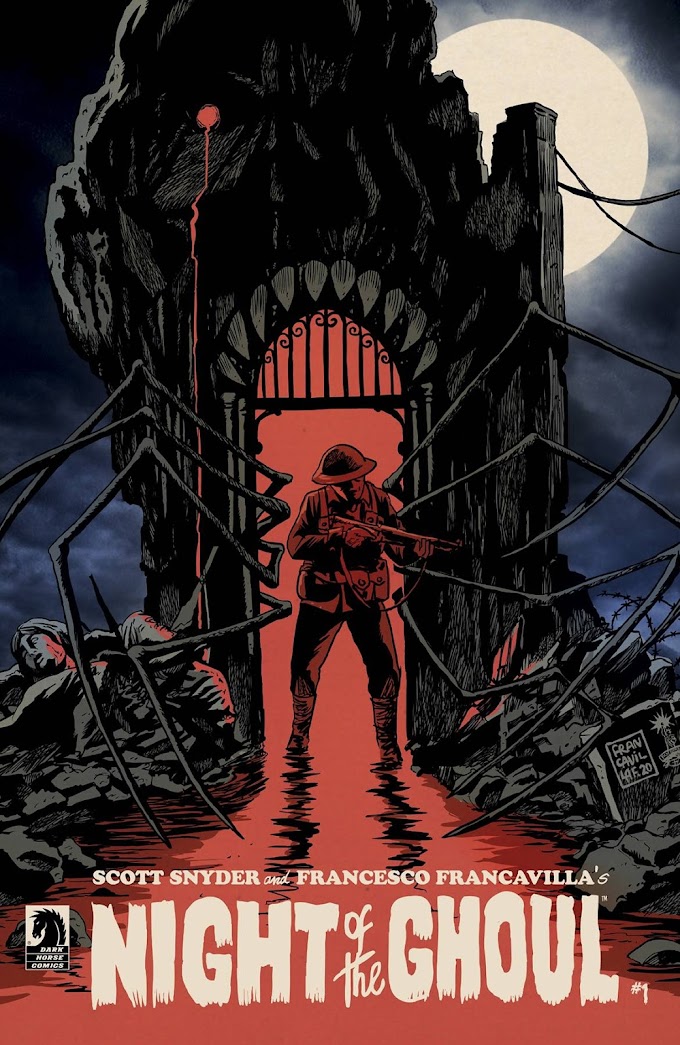 Jiro Taniguchi drew his comics with so much kindness in his images. A Journal of My Father tells the story of Yoichi and Takeshi, a son and his father Takeshi who both let their pride rob them of family and of time. After getting the phone call of his father’s death, Yoichi returns to his hometown of Tottori after spending most of the last 10 years in Tokyo. His return to his childhood home is more out of obligation and duty than out of a desire to honor his father. Yoichi’s wife has to practically push him out of their house. In Tottori, he finds a changed city but begins to recognize the streets and the people. It’s the same for his family as they gather the night before the funeral: they are changed but recognizable. And he is to them as well. Seeing his sister, his stepmother, and his uncle brings back the memories of his childhood that Yoichi has tried to escape during his self-imposed exile from his home. Taniguchi explores the pain of when a family can’t live up to their own expectations, whether it’s a wife and a husband or a father and a son.
Jiro Taniguchi drew his comics with so much kindness in his images. A Journal of My Father tells the story of Yoichi and Takeshi, a son and his father Takeshi who both let their pride rob them of family and of time. After getting the phone call of his father’s death, Yoichi returns to his hometown of Tottori after spending most of the last 10 years in Tokyo. His return to his childhood home is more out of obligation and duty than out of a desire to honor his father. Yoichi’s wife has to practically push him out of their house. In Tottori, he finds a changed city but begins to recognize the streets and the people. It’s the same for his family as they gather the night before the funeral: they are changed but recognizable. And he is to them as well. Seeing his sister, his stepmother, and his uncle brings back the memories of his childhood that Yoichi has tried to escape during his self-imposed exile from his home. Taniguchi explores the pain of when a family can’t live up to their own expectations, whether it’s a wife and a husband or a father and a son. Early in the book, we see the 1952 fire which ravaged Tottori and destroyed Yoichi’s home. Yoichi’s memory of life before the fire are brief and very general. He remembers his father’s barbershop and the way that the sun shone through the window and warmed up the place. There are not many memories about what his mother or his father were like before that but that may be due to his young age. But returning to Tottori after getting the call about his father’s passing, he describes the sensation of returning to his childhood hometown as “a strange feeling of time moving backwards…” Taniguchi drops this little nugget early in the book. At this point, we’re moving through two distinct time periods with Yoichi; the present as he has to reconcile his conflicted feelings about his father and the past as Yoichi has to remember what caused the divides between the two men. Time in this story ebbs and flows, moving forward and backward while Yoichi tries to remember what his father was like.
Yoichi’s memories of life before the fire are simple and innocent. But the fire burned that innocence away, even if it would be years before he could acknowledge that. As his family tried to rebuild their life after the fire, his parent’s relationship was one of the casualties of that event. At the memorial the night before the funeral, Yoichi’s uncle Daisuke, his mother’s brother, provided an older and more aware recounting of those days. Even as an adult, Yoichi finds it difficult to let go of his perception of the past or to accept his own limited memories of the time.
Even as Yoichi’s whole childhood and teenage years were colored by the fire and breakup of his family, Taniguchi never approaches the story in black and white terms. It is never about who was right and who was wrong. Taniguchi is far more compassionate in his storytelling than that. To balance out Yoichi’s one-sided memories, Daisuke provides another perspective on those days, trying to get his nephew to understand what both of his parents were going through. It’s a perspective of Yoichi’s childhood but it can see more sides of what really happened. As both men share their memories with us, we get to see a family like so many other families struggling to hold on to something.
Maybe Yoichi’s parents’ separation was inevitable. They fought to get married against the wishes of her parents, built a life together. But that life just couldn’t survive the fire. The pressure of rebuilding the life that they had was too much and she eventually left. For young Yoichi, it was far easier to blame the parent who stayed, his father, for everything that was happening. Just a child, he could only frame the dissolution of his family in terms of whose fault it could be. And to him, it was his father’s fault. His mother’s abandonment of her family set Yoichi on the path of eventually leaving his home and not looking back.
There’s no malice in Taniguchi’s characters, just misunderstanding. Even during the separation, there’s no sense of intentional malice or even anger in their actions. There’s confusion. There’s pain. There’s misunderstanding but there’s no spite in their actions. Any spite comes from Yoichi, a child who doesn’t know any better. His older sister has a greater awareness of the events but for the young boy, his mother leaving his father created this rift in Yoichi’s life that he struggled with all the way up through his father’s death. Taniguchi’s storytelling captures the complexity of the situation as well as the child-like reactions to it.
For many of us, this story covers family events from nearly 70 years ago and on the other side of the world. Based on that alone, this should feel like a very foreign story. Exploring the pain of lost time, Taniguchi forms this image of a world that doesn’t look all that different than what we know. While he’s very specific in setting the scene of this family’s mourning, he wisely focuses in on the human impact of everything that happened. Setting and tradition may be strange but the way that these people react feels very familiar and natural. This story could as easily be set in St. Paul, Minnesota instead of Tottori, Japan. Sure some of the details would shift but the emotions that Yoichi and his father have to deal with would be the same.
Jiro Taniguchi comics make the world feel smaller than it really is. Distance disappears between life in Japan and life wherever you may be. A Journal of My Father transports us to Tottori to experience this new culture and to get a glimpse into this broken family’s life. But the emotions that Taniguchi explores, the complete relationships, and the healing that’s needed in mourning are universal. There is a connection that we all share that Taniguchi brings to life, making these faraway events personal and intimate to those of us who are so far away from those times and those lands.










![Sweat and Soap [Ase to Sekken] by Kintetsu Yamada](https://blogger.googleusercontent.com/img/b/R29vZ2xl/AVvXsEgMnQltxjWqGS1_duhCp9Er1a0NbALuSFrqvjaV4_PjN_w67xCGghYt-l0qKyqTH7Ei7gbq_mxVq8aPAuOiyaArwAMLJWhpGmOYaARUBnwvjmv2-ZIe20m_zR5CvKnPdI6US_AuOnmi3gSX/w680/57525895-BA7E-4EF8-9FE4-89F9C164E1A4.jpeg)

